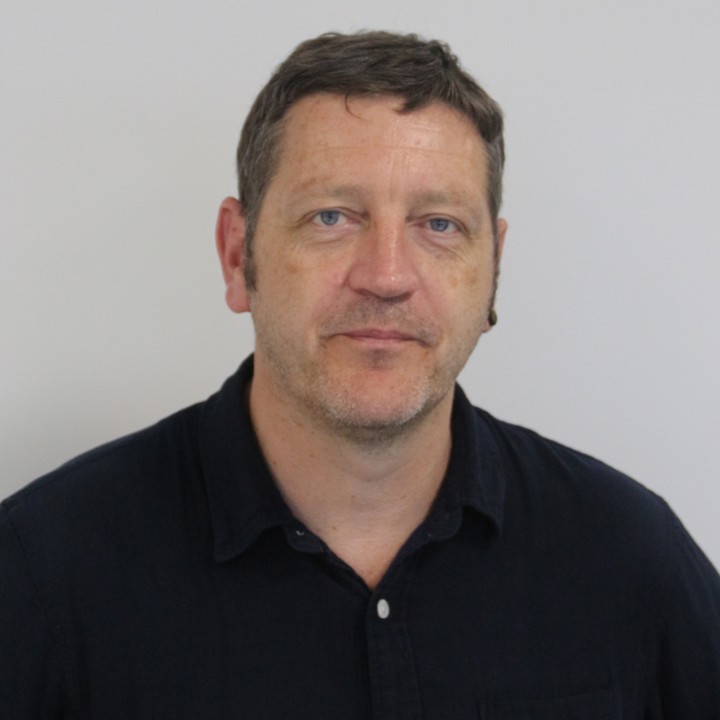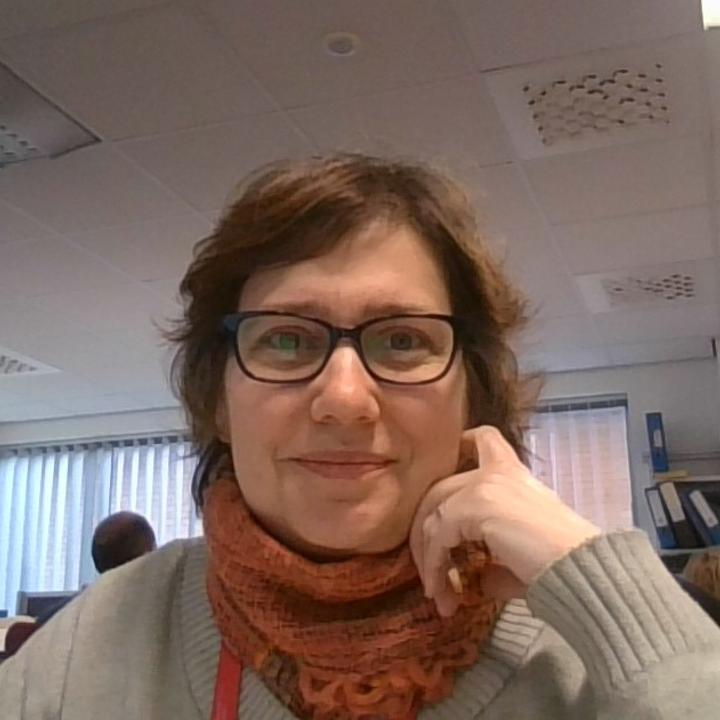
Research Area I - Genes
Research Area I covers the broad areas of DNA synthesis, repair, recombination and replication; RNA transcription, processing, translation, localisation and stability; genomics; chromosomes structure and dynamics; non-coding RNA; nucleic acid binding proteins; mutation; gene expression; epigenetics.
Get involved!
Research Area I - Genes
8 members

Robbie Baldock
Robbie Baldock
Robert completed his undergraduate degree at the University of Sussex in 2012 and later joined the laboratory of Dr Felicity Watts to study post-translational modifications that enable cells to respond to cellular stress. In 2016, he joined the University of Pittsburgh as a postdoctoral associate to determine the impact of mutations in DNA repair genes on sensitivity of cancer cells to precision medicines.
In 2018, Robert returned to the UK to start his own research laboratory. During this time, he helped establish a new BSc (Hons) Biomedical Science programme as a Lecturer at Solent University Southampton before later progressing to Senior Lecturer. In 2021, he joined the University of Gloucestershire to develop a 2nd set of new Biomedical Science programmes. In 2022, Robert joined the University of Portsmouth to continue his research investigating the mechanisms of DNA repair that protect both the mitochondrial and nuclear genome.
Robert is currently Associate Head (Employability & Placements) at the University of Portsmouth. He is a Local Ambassador for the Biochemical Society and serves on both the Genes Research Area Panel as well as on the society’s Early Career Advisory Panel. He has participated in external validation panels for new degree programmes and is an External Examiner for the University of Plymouth. Robert is also a Senior Fellow of the Higher Education Academy (AdvanceHE) and has a keen interest in how technology can widen-participation and enrich bioscience education.
Keywords: DNA repair, Genomic Stability, Cell Biology

Matthew Brook
Matthew Brook
Matt’s research focuses on the molecular control of gene expression at the post-transcriptional level. He is interested in the proteins that regulate mRNA utilisation and fate, their mechanisms of action, and the upstream signalling pathways that coordinate their functions. Over the years, these interests have been applied to diverse areas of human health including innate immunity, virology, and reproductive health, and are now being applied to understanding the contributions of post-transcriptional control to cardiometabolic health and disease. Matt graduated from University of Essex (BSc Biochemistry) and worked as a research assistant at University of Manchester and Imperial College, gaining an MRes Molecular Biochemistry and PhD, respectively. He became a Biomedical Sciences lecturer at University of Edinburgh in 2019, having worked there as a postdoc for several years. He is the academic lead for Standards in Research Practice in the UoE Centre for Cardiovascular Science and has been a Local Ambassador for the Biochemical Society since 2010.
Keywords: RNA-binding proteins, post-transcriptional control, mRNA translation, mRNA turnover, intracellular signalling

Ed Bolt
Ed Bolt

Ed studied molecular biology at QMUL and UCL London, gaining a PhD in bacterial tetrapyrrole biosynthesis. This provided excellent grounding about protein structure-function, and revealed that some proteins are really difficult to work with. Next was a switch to bacterial DNA repair using genetics, as a post-doc at The University of Nottingham. In 2002 the increasing interest in archaea led to Ed gaining a Wellcome Trust funded Career Development Fellowship to investigate archaeal DNA repair, which founded his lab within The Institute of Genetics at Nottingham. In 2002-2006 this research identified (what are now called) CRISPR-Cas proteins, alongside DNA repair proteins; CRISPR-Cas and DNA repair show strong interactions. Ed gained tenure in Biomedical Sciences (now Life Sciences) at Nottingham in 2006 where his group continues to investigate CRISPR-Cas and DNA repair in bacteria alongside human DNA repair proteins. Ed has roles overseeing support and development of researchers across Life Sciences and the University of Nottingham.
Keywords: DNA recombination and repair; CRISPR-Cas biology

John Knight
John Knight
John completed his PhD at the University of York with Prof Jo Milner, investigating post-translational regulation of p53, cancer metabolism and ribosome biogenesis. He then worked with Prof Anne Willis at the MRC Toxicology Unit in Leicester on projects investigating the dysfunction of the protein synthesis in sub-physiological conditions and disease. Next, he moved to Glasgow to work with Prof Owen Sansom to define the role of mutant KRAS in generating drug resistance in colorectal cancer. In 2022, John took up an independent group leader position in the Division of Cancer Sciences at the University of Manchester. John’s research focuses on the mechanisms of current cancer therapies from the point of view of protein synthesis and RNA biology. He is a discovery scientist with a highly collaborative approach, working with clinical and industrial partners.
Keywords: Protein synthesis, drug responses, cancer, RNA damage

Cristina Montiel-Duarte
Cristina Montiel-Duarte

Dr Cristina Montiel-Duarte received a PhD in Biochemistry from the U. of Navarra (Spain), supervised by Prof. Maria Iraburu and focused on signalling pathways associated to liver fibrosis. She undertook postdoctoral research investigating signalling pathways in leukaemia at the University Hospital (Navarra, Spain) with Prof. Felipe Prosper, before gaining a Ramon Areces Fellowship to undertake a second postdoc focused on gene regulation with Prof. David Heery at the U. of Nottingham. After a career break, she started her own group at Nottingham Trent University studying the role and regulation of AGAP2, which has led to her research on 5’UTRs (transcription start site selection and mRNA structures) and her interest in long non-coding RNAs, epigenetic changes, miRNA content in extracellular vesicles and intracellular trafficking.
Keywords: Transcription Start Site selection, 5’ UTRs, gene expression, methylation.

Swagat Ray
Swagat Ray
Dr. Swagat Ray is a cell biologist and Senior Lecturer at University of Lincoln. He earned his BSc in Microbiology from Bangalore University, an MSc in Medical Biochemistry from Kasturba Medical College, Manipal and a PhD in Cell Biology as a Felix Scholar at the University of Reading, UK. Prior to joining Lincoln, Dr. Ray was a senior Research Fellow at the University of Sheffield and held postdoctoral positions at the University of Warwick and Queen's University Belfast. With a primary research interest in DNA Damage Response (DDR) and its regulation by transcription, Dr. Ray has made significant contributions to the field with his research. His work has been published in prestigious international journals such as Nature, Nature Communications, Nature Neuroscience, Cell Reports, and Scientific Reports.

Connor Rogerson
Connor Rogerson
Connor is a Senior Research Associate at the University of Cambridge.
Connor’s research is focused on determining the role pioneer factors play in cell fate and disease, particularly in cancer. He graduated from Newcastle University with an honours degree in Biochemistry and then went on to obtain a PhD from the University of Manchester under the supervision of Prof Andy Sharrocks. From his PhD Connor developed a keen interest in transcription factors and sought out a postdoctoral position with Prof Christian Frezza to investigate the chromatin landscape in FH-deficient tumours. Connor is currently a Senior Research Associate in Prof Jussi Taipale’s lab at the University of Cambridge.
Keywords: chromatin, transcription factors, enhancers, genome-wide chromatin profiling, GI cancers

Michael Tellier
Michael Tellier
Michael’s research focuses on the functions of protein phosphorylation in the regulation of transcription and co-transcriptional processes, including pre-mRNA splicing and mRNA cleavage and polyadenylation. He received a BSc in Biology from the University Val d’Essonne, France, and a MSc in Microbiology from the University Paris VII, France. He then moved to the University of Nottingham, UK, to perform his PhD in the group of Prof. Ronald Chalmers investigating the role of transposable elements on chromatin and gene expression. He then trained as a postdoctoral researcher in the group of Prof. Shona Murphy at the Sir William Dunn School of Pathology, University of Oxford, UK, where he investigated the roles of cyclin-dependent kinases (CDKs) in transcription and mRNA cleavage and polyadenylation. In early 2023, Michael established his independent research group at the University of Leicester, UK.
Keywords: Transcription, pre-mRNA splicing, mRNA cleavage and polyadenylation, protein phosphorylation, kinases, phosphatases






